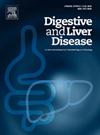LIRICA and LITALHICA: Redefining Liver Transplantation for Cholangiocarcinoma Through a Multidisciplinary Tumor Board Approach
IF 3.8
3区 医学
Q1 GASTROENTEROLOGY & HEPATOLOGY
引用次数: 0
Abstract
Background
Liver transplantation (LT) for perihilar cholangiocarcinoma (pCCA) provides outstanding outcomes within the Mayo Clinic protocol (MP). However, an Italian survey revealed that, since 2015, 39% of pCCA patients undergoing LT deviated from the MP due to recurrent cholangitis, untreatable hyperbilirubinemia, or logistical obstacles. Major concerns include diagnostic difficulties, the effect of radiotherapy, and the need to change chemotherapy from the standard of care (SOC). Intrahepatic cholangiocarcinoma (iCCA) has traditionally been a contraindication for LT, but recent studies have explored its potential as a novel transplant oncology indication.
Methods
We developed two similar study protocols that propose LT for unresectable iCCA (LIRICA) and pCCA (LITALHICA) after SOC neoadjuvant chemotherapy, serving as a test of time and to asses tumor biology. A multidisciplinary board (comprising hepatobiliary surgeons, transplant surgeons, oncologists, and radiologists) assesses tumor unresectability and confirms adherence to inclusion criteria, providing endorsements for approval by the Italian National Transplantation Center (CNT). Eligible patients undergo six months of SOC chemotherapy and are then restaged by CT, PET-MRI, and diagnostic laparoscopy. Those with stable disease or partial response proceed to transplantation, while patients with disease progression receive second-line chemotherapy.
Results
Since protocol approval (January 2024), 72 patients from 12 Italian centers have been evaluated (26 LITALHICA, 46 LIRICA). Of these, 10 were rejected based on exclusion criteria, and 32 were deemed eligible but could not be enrolled in the prospective protocols due to prior chemotherapy initiation. The first per-protocol LITALHICA case was aborted due to peritoneal carcinomatosis at exploratory laparotomy. The first LIRICA patient was successfully transplanted in August 2024 and is alive and recurrence-free after nearly one year. A total of 14 patients received LT while five patients are awaiting LT.
Conclusions
Expanding the indications for LT requires robust scientific evidence from prospective trials. A multidisciplinary expert board provides the most effective framework for ensuring rigorous, case-by-case evaluation and strict adherence to criteria, efficiently balancing the principles of resectability and radicality.
LIRICA和LITALHICA:通过多学科肿瘤委员会方法重新定义胆管癌肝移植
肝移植治疗肝门周围胆管癌(pCCA)在梅奥诊所方案(MP)中提供了出色的结果。然而,意大利的一项调查显示,自2015年以来,39%的接受肝移植的pCCA患者由于复发性胆管炎、无法治疗的高胆红素血症或后勤障碍而偏离了MP。主要的问题包括诊断困难,放疗的效果,以及从护理标准(SOC)改变化疗的需要。肝内胆管癌(iCCA)传统上是肝内胆管癌的禁忌症,但最近的研究已经探索了它作为一种新的移植肿瘤适应症的潜力。方法:我们制定了两个类似的研究方案,提出在SOC新辅助化疗后不可切除的iCCA (LIRICA)和pCCA (LITALHICA)进行LT,作为时间测试和评估肿瘤生物学。一个多学科委员会(包括肝胆外科医生、移植外科医生、肿瘤学家和放射科医生)评估肿瘤的不可切除性,并确认符合纳入标准,为意大利国家移植中心(CNT)的批准提供背书。符合条件的患者接受6个月的SOC化疗,然后通过CT、PET-MRI和诊断性腹腔镜检查进行重新分期。那些病情稳定或部分反应的患者进行移植,而病情进展的患者接受二线化疗。结果自方案批准(2024年1月)以来,已经评估了来自12个意大利中心的72名患者(26名LITALHICA, 46名LIRICA)。其中,10例根据排除标准被拒绝,32例被认为符合条件,但由于先前的化疗开始而无法纳入前瞻性方案。第一例LITALHICA病例在剖腹探查术中因腹膜癌而流产。第一位LIRICA患者于2024年8月成功移植,近一年后存活且无复发。共有14例患者接受了肝移植,5例患者正在等待肝移植。结论:扩大肝移植的适应症需要来自前瞻性试验的有力科学证据。多学科专家委员会提供了最有效的框架,以确保严格的个案评估和严格遵守标准,有效地平衡可切除性和激进性原则。
本文章由计算机程序翻译,如有差异,请以英文原文为准。
求助全文
约1分钟内获得全文
求助全文
来源期刊

Digestive and Liver Disease
医学-胃肠肝病学
CiteScore
6.10
自引率
2.20%
发文量
632
审稿时长
19 days
期刊介绍:
Digestive and Liver Disease is an international journal of Gastroenterology and Hepatology. It is the official journal of Italian Association for the Study of the Liver (AISF); Italian Association for the Study of the Pancreas (AISP); Italian Association for Digestive Endoscopy (SIED); Italian Association for Hospital Gastroenterologists and Digestive Endoscopists (AIGO); Italian Society of Gastroenterology (SIGE); Italian Society of Pediatric Gastroenterology and Hepatology (SIGENP) and Italian Group for the Study of Inflammatory Bowel Disease (IG-IBD).
Digestive and Liver Disease publishes papers on basic and clinical research in the field of gastroenterology and hepatology.
Contributions consist of:
Original Papers
Correspondence to the Editor
Editorials, Reviews and Special Articles
Progress Reports
Image of the Month
Congress Proceedings
Symposia and Mini-symposia.
 求助内容:
求助内容: 应助结果提醒方式:
应助结果提醒方式:


